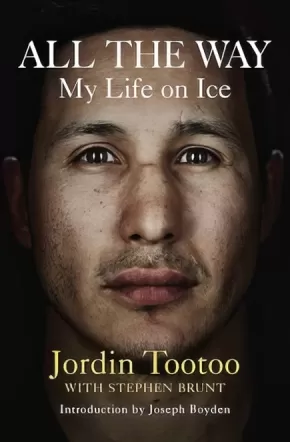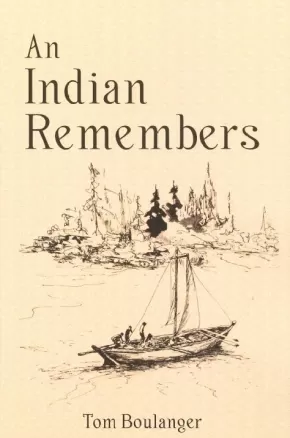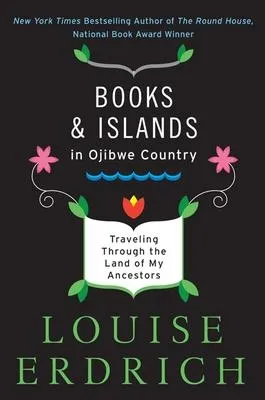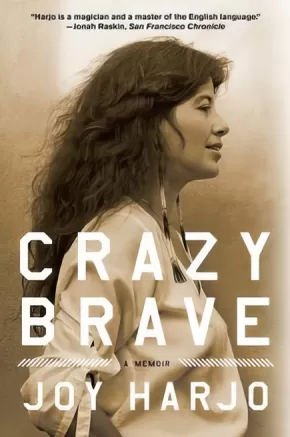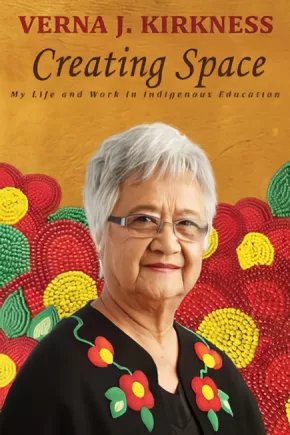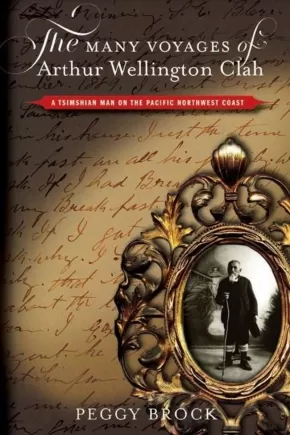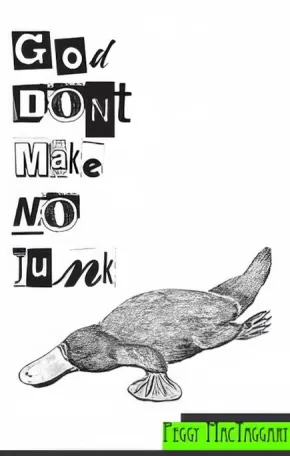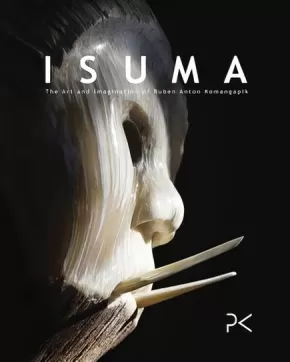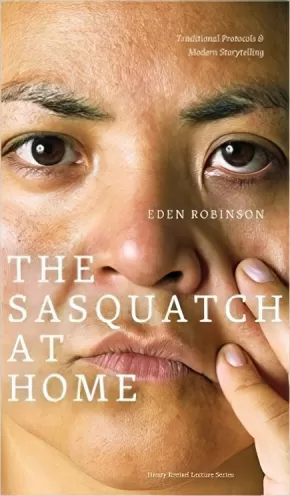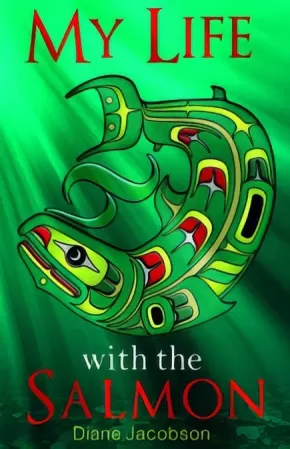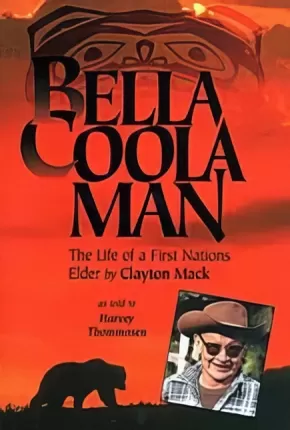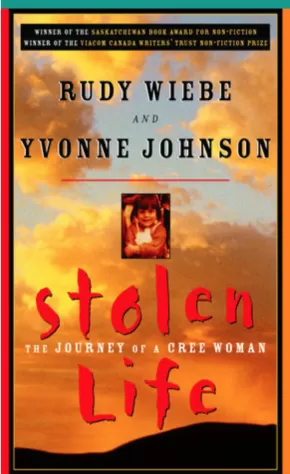Autobiographies
Synopsis:
It seemed as though nothing could stop Jordin Tootoo on the ice. The captain of Canada's Under-18, a fan favorite on the World Junior squad, and a WHL top prospect who could intimidate both goalies and enforcers, he was always a leader. And when Tootoo was drafted by Nashville in 2000 and made the Predators out of camp in 2003, he became a leader in another way: the first player of Inuk descent to suit up in the NHL. The stress of competition in the world's top hockey league, the travel, the media, the homesickness—and the added pressure to hold one's head high as a role model not only for the young people of his hometown of Rankin Inlet but for the culture that had given him the strength and the opportunities to succeed—would have been more than enough to challenge any rookie. But Tootoo faced something far more difficult: the loss of his brother in the year between his draft and his first shift for the Predators. Though he played through it, the tragedy took its inevitable toll. In 2010, Tootoo checked himself into rehab for alcohol addiction. It seemed a promising career had ended too soon. But that's not the way Tootoo saw it and not the way it would end. As heir to a cultural legacy that included alcohol, despair, and suicide, Tootoo could also draw on a heritage that could help sustain him even thousands of miles away from Nunavut. And in a community haunted by the same hopelessness and substance abuse that so affected Tootoo's life, it is not just his skill and fearlessness on the ice that have made him a hero, but the courage of his honesty to himself and to the world around him that he needed to rely on others to sustain him through his toughest challenge. All the Way tells the story of someone who has traveled far from home to realize a dream, someone who has known glory and cheering crowds, but also the demons of despair. It is the searing, honest tale of a young man who has risen to every challenge and nearly fallen short in the toughest game of all, while finding a way to draw strength from his community and heritage, and giving back to it as well.
Additional Information
240 pages | 5.25" x 8.23"
Step back in time with this story of Tom Boulanger, told in his own words, about his life in Northern Manitoba. A story of hardships and pleasures, a story not only about Tom, but about his family and the community around him.
Synopsis:
For more than three decades, bestselling author Louise Erdrich has enthralled readers with dazzling novels that paint an evocative portrait of Native American life. From her dazzling first novel, Love Medicine, to the National Book Award-winning The Round House, Erdrich’s lyrical skill and emotional assurance have earned her a place alongside William Faulkner and Willa Cather as an author deeply rooted in the American landscape.
In Books and Islands in Ojibwe Country, Erdrich takes us on an illuminating tour through the terrain her ancestors have inhabited for centuries: the lakes and islands of southern Ontario. Summoning to life the Ojibwe's sacred spirits and songs, their language and sorrows, she considers the many ways in which her tribe—whose name derives from the word ozhibii'ige, "to write"—have influenced her. Her journey links ancient stone paintings with a magical island where a bookish recluse built an extraordinary library, and she reveals how both have transformed her.
A blend of history, mythology, and memoir, Books and Islands in Ojibwe Country is an enchanting meditation on modern life, natural splendor, and the ancient spirituality and creativity of Erdrich's native homeland—a long, elemental tradition of storytelling that is in her blood.
Additional Information
160 pages | 5.31" x 8.00" | 15 Illustrations, 1 Map | Paperback
Synopsis:
A “raw and honest” (Los Angeles Review of Books) memoir from the first Native American Poet Laureate of the United States.
In this transcendent memoir, grounded in tribal myth and ancestry, music and poetry, Joy Harjo details her journey to becoming a poet. Born in Oklahoma, the end place of the Trail of Tears, Harjo grew up learning to dodge an abusive stepfather by finding shelter in her imagination, a deep spiritual life, and connection with the natural world. Narrating the complexities of betrayal and love, Crazy Brave is a haunting, visionary memoir about family and the breaking apart necessary in finding a voice.
Additional Information
176 pages | 5.50" x 8.22" | Paperback
Synopsis:
Verna J. Kirkness grew up on the Fisher River Indian reserve in Manitoba. Her childhood dream to be a teacher set her on a lifelong journey in education as a teacher, counsellor, consultant, and professor.
As the first cross-cultural consultant for the Manitoba Department of Education Curriculum Branch she made Cree and Ojibway the languages of instruction in several Manitoba schools. In the early 1970s she became the first Education Director for the Manitoba Indian Brotherhood (now the Assembly of Manitoba Chiefs) and then Education Director for the National Indian Brotherhood (now the Assembly of First Nations). She played a pivotal role in developing the education sections of Wahbung: Our Tomorrows, which transformed Manitoba education, and the landmark 1972 national policy of Indian Control of Indian Education. These two major works have shaped First Nations education in Canada for more than 40 years.
In the 1980s she became an assistant professor at the University of British Columbia where she was appointed Director of the Native Teacher Education Program, founded the Ts’‘Kel Graduate Program, and was a driving force behind the creation of the First Nations House of Learning. Honoured by community and country, Kirkness is a visionary who has inspired, and been inspired by, generations of students.
Like a long conversation between friends, Creating Space reveals the challenges and misgivings, the burning questions, the successes and failures that have shaped the life of this extraordinary woman and the history of Aboriginal education in Canada.
Synopsis:
First-hand accounts of Indigenous people’s encounters with colonialism are rare. A daily diary that extends over fifty years is unparalleled. Based on a transcription of Arthur Wellington Clah’s diaries, this book offers a riveting account of a Tsimshian man who moved in both colonial and Aboriginal worlds. From his birth in 1831 to his death in 1916, Clah witnessed profound change: the arrival of traders, missionaries, and miners, and the establishment of industrial fisheries, wage labour, and reserves. His many voyages – physical, cultural, and spiritual – provide an unprecedented Aboriginal perspective on colonial relationships on the Pacific Northwest Coast.
Drawing on a painstaking transcription of Arthur Wellington Clah’s diaries, Peggy Brock pieces together the many voyages -- physical, cultural, intellectual, and spiritual -- of a Tsimshian man who moved in both colonial and Aboriginal worlds. Clah’s birth in 1831 coincided with the establishment of a permanent fur trade post, and he became student, teacher, and confidant to missionary William Duncan. Later, Clah’s spiritual voyage into the world of colonial culture transformed him into a devout Christian and an evangelist for the faith.
From the goldfields of BC and Alaska to the hop fields of Washington State, Clah witnessed profound change. His diaries reveal the complexities of personal interactions between colonizers and the colonized and the inevitable tensions within a community undergoing rapid change. They also show how Clah’s hopes for his people were gradually eroded by the realities of land dispossession, interference by the colonial state in cultural and political matters, and diminishing economic opportunities.
Taken together, Clah’s many voyages offer an unprecedented Aboriginal perspective on colonial relationships as they played out on the Pacific Northwest Coast.
This book is required reading for students and scholars of indigenous peoples and colonialism and anyone interested in BC or Canadian history.
Reviews
"The Many Voyages of Arthur Wellington Clah is a striking book offering an on-the-ground viewpoint of colonialism as it evolved on the Pacific Northwest Coast of Canada." - Susan Neylan, Wilfrid Laurier University, Journal of Colonialism and Colonial History, V. 13, No 2, Fall 2012
"A fascinating account...Peggy Brock has made a truly significant contribution to our understanding of the history of the northwest coast in the nineteenth century." - Robin Fisher, Mount Royal University, International Journal of Maritime History, Vol XXIV No 3
"Arthur Wellington Clah’s diary is likely the most remarkable document to come into the light of Pacific Northwest Coast history ... Surmounting the challenges presented by this rich and at times near impenetrable personal record, Peggy Brock has researched and admirably summarized fifty years of the diary, pulling out key themes and highlighting its many contradictions. This much-needed introduction to a man and an indigenous history of British Columbia and Alaska will change the way we think about our past." - John S. Lutz, author of Makúk: A New History of Aboriginal-White Relations
Clah’s life and diary offer a window into the lives of the Tsimshian political hierarchy of the time and Tsimshian society’s interaction with colonialism ... His voyage is a metaphor for the voyage that his own and other indigenous people were also taking in their encounters with colonialism." - Neil Sterritt, consultant in Aboriginal leadership and governance
Additional Information
324 pages | 6.00" x 9.00" | 19 photographs, 4 maps | Paperback
Synopsis:
Accompany Bobbie as she traces back the path of her life; from her Ojibwa roots to her rejection of her culture following the horrific abuse she endured during her childhood. She reflects on her life with sadness and humor recalling her tumultuous marriage and divorce, her life as a single parent, her battle with drugs and alcohol and the long road back to her traditions that took decades. God don’t Make No Junk will stay in the readers mind long after they finish reading it.
Synopsis:
Ruben Anton Komangapik is one of the Arctic's most gifted sculptors.
His work has been exhibited across Canada with pieces on permanent loan to the Museum of Nature and Culture in Montreal. In Isuma, Ruben's vibrant, provocative sculpture, and his artistic process, are brought to life by photographer Estelle Marcoux Komangapik's arresting images.
Part autobiography, part art object, this book will introduce Canadians to one of the Arctic's most talented young artists.
Synopsis:
In March 2010 the Canadian Literature Centre hosted award-winning novelist and storyteller Eden Robinson at the 4th annual Henry Kreisel Lecture. Robinson shared an intimate look into the intricacies of family, culture, and place through her talk, "The Sasquatch at Home." Robinson's disarming honesty and wry irony shine through her depictions of her and her mother's trip to Graceland, the potlatch where she and her sister received their Indian names, how her parents first met in Bella Bella (Waglisla, British Columbia) and a wilderness outing where she and her father try to get a look at b'gwus, the Sasquatch. Readers of memoir, Canadian literature, Aboriginal history and culture, and fans of Robinson's delightful, poignant, sometimes quirky tales will love The Sasquatch at Home.
Reviews
"[Eden Robinson's] lecture reprises the Sasquatch theme from her novel, Monkey Beach. It is less a lecture than an extended poem – a love song to a place and people, a celebration of survival of places, names, and humans.... The work is filled with alternate narratives. Just when we are eagerly following a line of story or thought, out come Trickster-ish turns and teases.... Robinson seductively draws outsiders in, then sharply clarifies the limits of the welcome.... Eden Robinson brings her own literary ethics to the discussion [of the limits of cross-cultural sharing]. Her consciousness and conscientiousness permeate her fiction as well as the Sasquatch lecture. It is fitting that Paula Simons calls her 'one of Canada’s most provocative and talented writers' and also 'a moral and cultural force'." -Valerie Alia, Cantext, February 2012
Additional Information
64 pages | 14.00" x 23.00"
Synopsis:
Diane “Honey” Jacobson’s latest book is an important comment about First Nations efforts to save the salmon and her personal youthful journey to find meaning and a sense of place in life. Like the style in her first book My Life in a Kwagu’l Big House, Diane’s style in My Life with the Salmon is full of action, amazing adventures and fascinating connections between land, water and people. In My Life with the Salmon, we follow “Honey” through sometimes hilarious and sometimes difficult periods but we always learn a life lesson.
Awards
- 2012 Winner of the Independent Publisher Book Awards
Additional Information
176 pages | 5.50" x 8.47"
Synopsis:
When Clayton Mack was a child, his parents wrapped him in wolf skin and dumped him in water four times so he would grow up strong and fierce in the woods like a wolf. True to this Nuxalk tradition, Mack grew up to be a world-famous grizzly bear hunter and guide.
Clayton Mack''s first book of amazing tales about bears and q''umsciwas (white men), "Grizzlies and White Guys," became an instant best seller when it was published in 1993. In "Bella Coola Man," Clayton Mack continues his hair-raising stories about pulling bears out of the bushes by their legs, eating fresh bear meat with Thor Heyerdahl, finding gold nuggets in the bush, murder in the Big Ootsa country and dead men's talking beans, plus Crooked Jaw the Indian agent and where to find good fishing.
Clayton Mack was a walking encyclopedia of tribal lore, and one of the best storytellers ever born. The stories in "Bella Coola Man" are the last he told, and reflect his desire to pass on as much information about Nuxalk life and legends as he could before his death. Hear about the man-eater dance performed at River's Inlet where the dancers ate a dead woman's head, or about the last Indian war on the coast, native remedies like devil's club tea which is "good for anything," Alexander Mackenzie''s travels through Bella Coola country along the Grease Trail, how native hunters killed mountain goats by prying them off cliffs with sticks, and about forgotten villages and places, which come alive again through Clayton Mack''s words.
Clayton Mack had a deep understanding and appreciation of life on British Columbia''s rugged coast. His stories are unique lessons in history, as well as pure entertainment. Here are the stories of the legend himself, Clayton Mack.
Additional Information
240 pages | 6.00" x 9.00"
Synopsis:
The powerful, major book, acclaimed across Canada, from the great-great-granddaughter of Chief Big Bear and Rudy Wiebe, twice winner of the Governor General''s Award for Fiction. A story of justice and social injustices, of murder and morality, and of finding spiritual strength in events that might break us, told with redeeming compassion and poetic eloquence. Stolen Life is a raw, honest, and beautifully written account of the troubled society we live in, and a deeply moving affirmation of spiritual healing.

